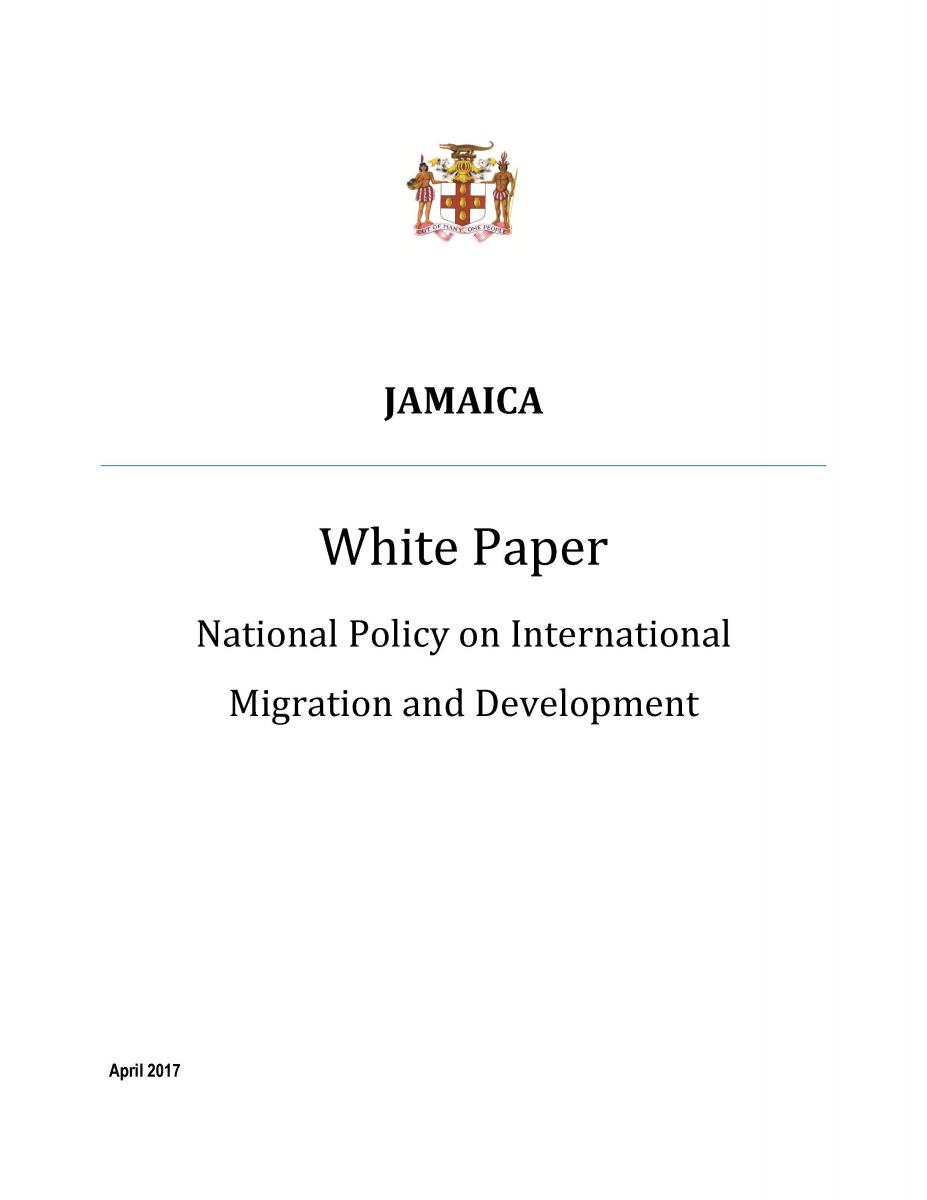

 The National Policy on International Migration and Development responds to key global developments which have revealed, over time, the need to address the broad and evolving range of challenges and opportunities associated with migration. The policy seeks to ensure that international migration is adequately measured, monitored and influenced to serve the development needs of Jamaica as outlined in the Vision 2030 Jamaica–National Development Plan.
The National Policy on International Migration and Development responds to key global developments which have revealed, over time, the need to address the broad and evolving range of challenges and opportunities associated with migration. The policy seeks to ensure that international migration is adequately measured, monitored and influenced to serve the development needs of Jamaica as outlined in the Vision 2030 Jamaica–National Development Plan.
The National Policy on International Migration and Development recognizes that Jamaica is a country of origin, transit and destination. It is also recognized that relationships exist between migration and the economic, social and cultural conditions in developing countries such as Jamaica. Therefore, migration may stimulate the creation of new economic opportunities in Jamaica as a destination country through the transfer of human, social, cultural and financial capital. A Diaspora Policy is being formulated to examine issues that affect the Diaspora, but are not addressed in the National Policy and which will complement this policy. The complementarity between these policies will facilitate the development of a coordinated strategy for engagement with the Diaspora and the harnessing of their talents and skills toward mutual development efforts.
Acknowledged in the policy is the fact that migrants are potential agents of development, who are well positioned to strengthen cooperation between countries of origin and destination. They contribute to national development through remittances, investments, expenditures and the transfer of newly developed skills and expertise in their home country. Overall, the National Policy seeks to promote a better understanding of the linkages between migration and development, particularly within the context of globalization and the need to maximize the benefits and minimize the negative impacts of international migration.
The policy development process was led by the Planning Institute of Jamaica (PIOJ) and the Ministry of Foreign Affairs and Foreign Trade (MFAFT). Multi-sectoral and multi-agency teams from Ministries, Departments, Agencies (MDAs); the private sector; non-governmental organizations and civil society bodies supported the development of the policy and contributed to the recommended outcomes and actions that will promote policy coherence at all levels.
GFMD 2019 - Quito Summit - Roundtable Session 1.2: "Facilitating social and economic inclusion"
GFMD 2017 - Direct contribution from Jamaica
For more information: